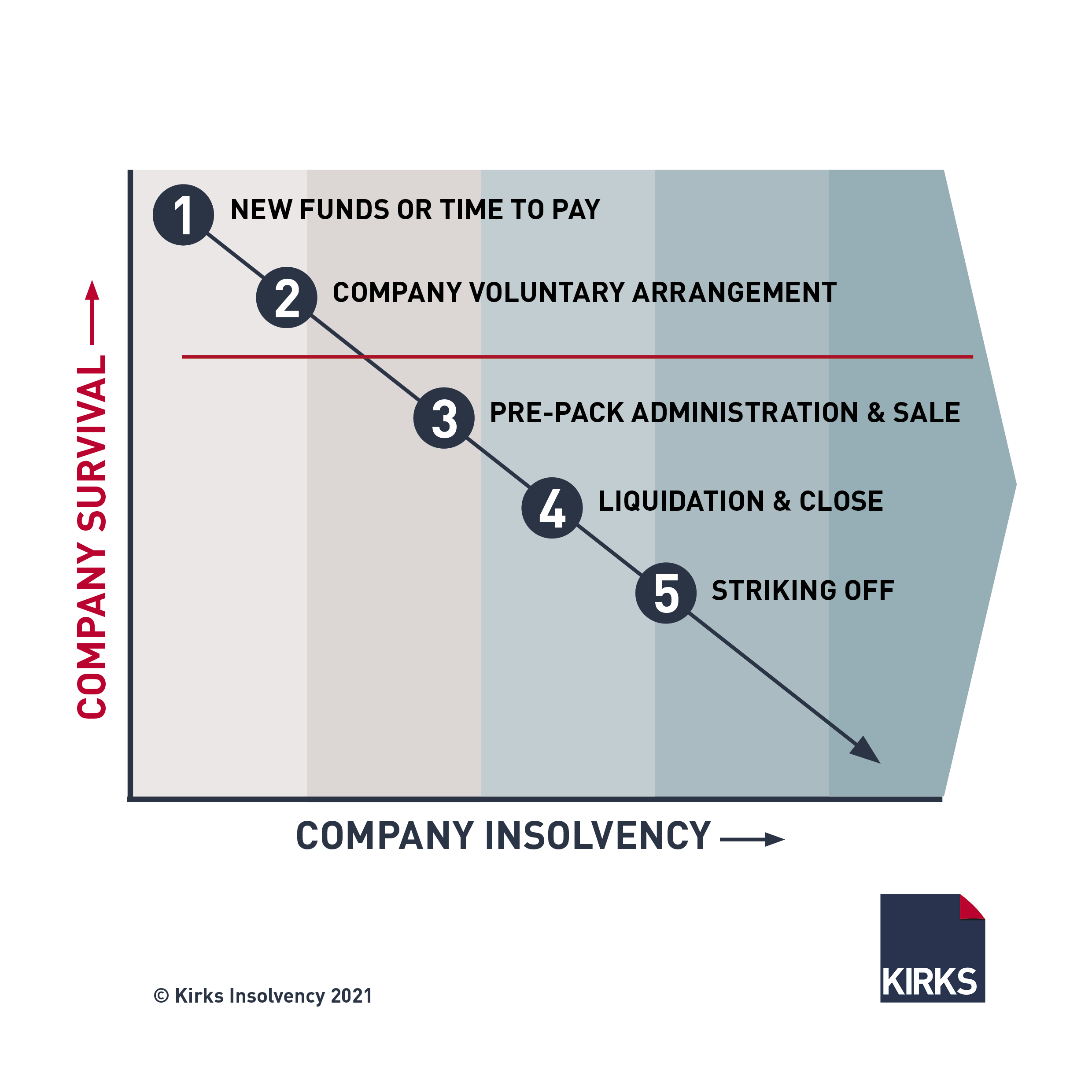Things about Insolvency Practitioner
Things about Insolvency Practitioner
Blog Article
Insolvency Practitioner Things To Know Before You Get This
Table of ContentsSome Known Incorrect Statements About Insolvency Practitioner Insolvency Practitioner Can Be Fun For EveryoneInsolvency Practitioner Can Be Fun For EveryoneThe Main Principles Of Insolvency Practitioner More About Insolvency PractitionerThe Buzz on Insolvency PractitionerRumored Buzz on Insolvency Practitioner
Insurance coverage is kept an eye on and controlled by state insurance policy departments, and one of their main purposes is safeguarding policyholders from the danger of a company in economic distress. When a business enters a duration of economic trouble and is unable to meet its commitments, the insurance policy commissioner in the company's home state launches a processdictated by the legislations of the statewhereby efforts are made to help the business regain its financial footing.If it is figured out that the company can not be fixed up, the firm is proclaimed financially troubled, and the commissioner will ask the state court to purchase the liquidation of the firm. [Back] The insurance commissioner, either selected by the guv or chosen, heads the state insurance policy division and screens and manages insurance policy activity within the state.

By acquiring control of a firm, the commissioner (or the insurance coverage department) is, by law, the rehabilitator or liquidator of the business. In this ability, the commissioner or department takes control of the business's procedures. Rather than do so directly, the commissioner may keep an unique replacement receiver to monitor the firm's tasks.
Top Guidelines Of Insolvency Practitioner
The receiver looks after an accounting of the company's possessions and obligations and administers the estate of the firm. In doing so, the receiver seeks to make best use of the company's properties, transfer them to cash, and after that distribute that cash to financial institutions having legitimate claims against the insurer according to repayment concerns defined by state legislation (in all states, policyholders are priority claimants whose insurance claims are paid before those of basic creditors).
All insurer (with minimal exemptions) certified to sell life or health and wellness insurance or annuities in a state need to be members of that state's warranty association. The warranty organization accepts the commissioner and the receiver in pre-liquidation planning. Once the liquidation is purchased, the guaranty organization provides insurance coverage to the firm's insurance policy holders that are state locals (as much as the degrees defined by state lawssee below; any type of advantage amounts above the warranty asociation advantage levels end up being cases against the business's continuing to be assets).
The above protection degrees apply individually for every bankrupt insurance company. [Back] When an insurance firm fails and there is a shortfall of funds needed to meet the obligations to insurance holders, state guaranty associations are turned on. Guaranty organizations have two main resources of funding when supplying coverage to policyholders. Warranty associations have subrogation legal rights to a proportional share of the assets continuing to be in the fallen short insurer.
Insolvency Practitioner for Beginners
Second, insurance providers doing company in that state are assessed a share of the amount required to meet the part of the warranty associations' protected insurance claims not or else funded with estate properties. The go to these guys quantity insurance providers are analyzed is based upon the amount of premiums that they collect because state. [Back] The National Organization Extra resources of Life and Medical Insurance Warranty Associations (NOLHGA) is comprised of the life and medical insurance warranty organizations of all 50 states and the District of Columbia.
NOLHGA establishes a job pressure of representative guaranty organizations to deal with the insurance commissioner to create a plan to protect insurance holders. For more information on NOLHGA's role while doing so, see "What Is NOLHGA?" and "The Safeguard at the office." [Back]
You are below: Bankruptcy is when a company or individual can't pay financial debts when they are due. There are a number of alternatives readily available to a bankrupt business or individual: ASIC controls business, it does not take care of individual bankruptcy treatments. For even more information concerning bankruptcy and individual bankruptcy agreements, go to the Australian Financial Protection Authority site.
Insolvency Practitioner for Beginners
Anticipating defense by helping you pick the ideal consumers and the best markets to stay clear of uncollectable loan to begin with, thanks to severe financial analysis (Insolvency Practitioner). In-depth market knowledge, supplying you with 360-degree exposure on business markets and foreshadowing problems. It would certainly be a simplification to think a profession debt insurance begins and finishes with costs and pay-outs
This can occur for a number of reasons, consisting of pop over to these guys poor monetary management, unforeseen prices, or a change in the marketplace. If a business is bankrupt, it might be compelled to shut down or sell off properties to pay financial institutions. This can have a significant effect on the organization, staff members, and shareholders.
Insolvency Practitioner for Dummies
It can lead to job losses, possession sales, and even insolvency. It is essential to understand how company bankruptcy jobs and how it can affect your company. Why does a firm participate in insolvency? There are a variety of reasons a company may become part of bankruptcy. One of the most usual factor is that the firm is unable to pay its financial obligations as they drop due.

What Does Insolvency Practitioner Do?
The business might be required to market possessions, lay off staff or also close down. Lenders may be left out of pocket and the business's shareholders may see their financial investment disappear.
This can happen for a variety of factors, including poor financial administration, unforeseen expenses, or an adjustment on the market. If a business is financially troubled, it may be required to shut down or sell properties to pay financial institutions. This can have a significant impact on the company, employees, and shareholders.
The Only Guide for Insolvency Practitioner
Why does a business enter into insolvency? There are a number of reasons why a firm might enter right into insolvency.
Other reasons for insolvency consist of fraudulence, mismanagement, and unforeseen prices. Insolvency can additionally lead to job losses and the closure of services.
This can have major effects for the company, its stakeholders, lenders and the economy. The firm may be compelled to market assets, gave up team or even shut down. This can have a ripple effect on the regional area and the economy as a whole. Creditors might be neglected of pocket and the company's investors may see their financial investment disappear.
Report this page